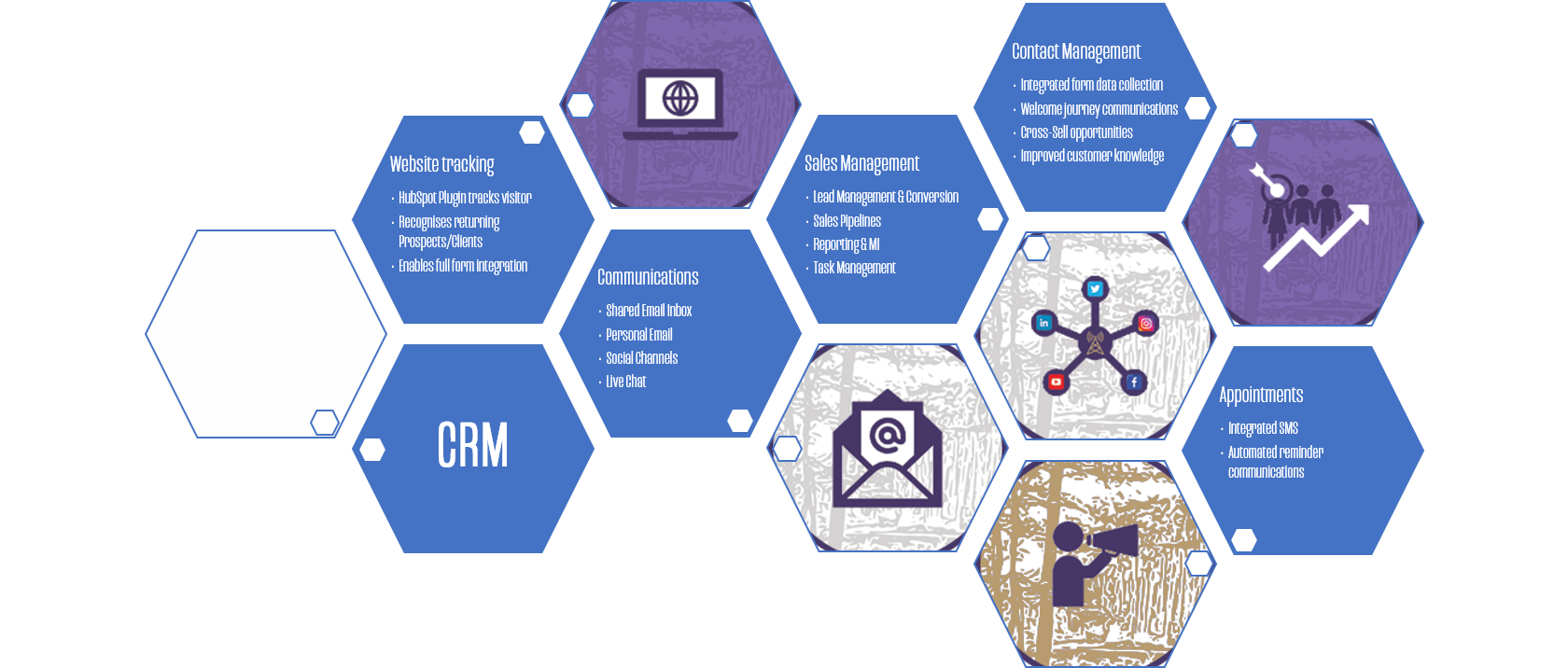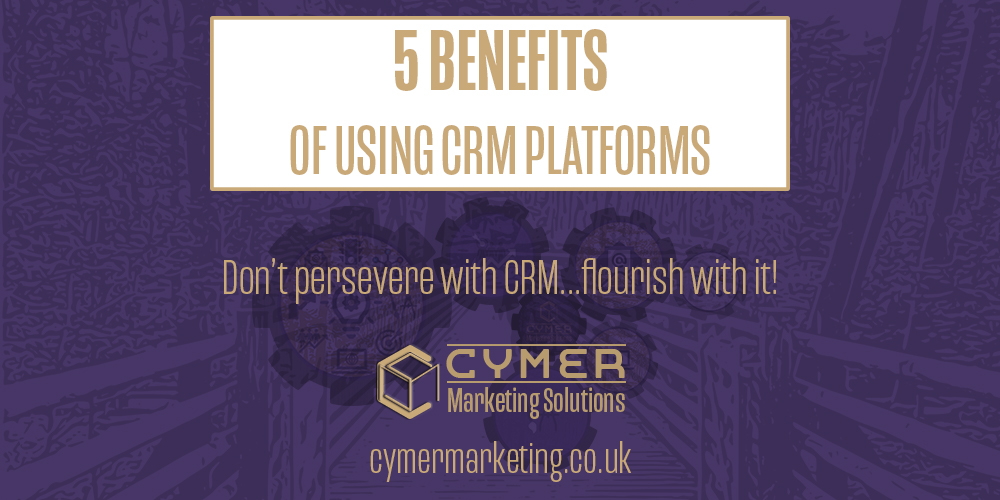
We’ve all heard about CRM – Customer Relationship Management.
Arguably, relationship is the most important acronym, because relationships are the bridge between what your business offers and what your customer needs.
So, businesses are adopting CRM platforms to improve the quality and consistency of their relationships in an effort to boost customer loyalty and overall improve customer experience.
Once you start using a CRM platform, it’ll be hard to imagine what life was like before you did.
One reason being, CRM platforms allow you to keep everything related to managing your customer relations, such as data, notes, metrics etc. all in one place; keeping everything structured and organised.
Moreover, a CRM platform can help your company to target different audiences, set alerts based on customer’s activity and maintain relationships.
Best of all, it’s a system that can be used across all departments, so you can ensure all team members are provided with the correct data in order to create the best customer experience.
Of course, benefits may vary between departments or even industries, however here are 5 benefits of using CRM platforms for every user.
1. Better Customer Service
CRM platforms today come with a wealth of features, but initially the software was created in order to improve relationships between a business and its customers.
One of the biggest benefits of using a CRM platform is that it can manage all of your contacts and gather important information, such as demographics and purchase records, all in one place.
More importantly, the platform makes the data accessible to anyone in your company, across any department, who needs it.
As a result, every employee will have the relevant data they need to know about the customer at the touch of a button, therefore being able to provide a better customer experience and overall boosting customer satisfaction.
2. Improved Customer Retention
Once you have converted leads, you’ll want to work just as hard to retain them and encourage customer loyalty.
Consequently, high customer turnover can have negative effects on your business, such as diminished revenue or disrupted cash flow; keeping a customer is up to 7 times cheaper than getting a new one.
As such, a CRM platform and the processes it provides, i.e. automation of customer support and user behaviour tracking to help identify issues your customers face and address them early on to promote repeat business.
3. Collaboration Between Teams
CRM platforms are able to keep all records of any conversations, interactions, notes and more.

And, if it’s cloud-based and consistently updated, it means all employees can easily access it to make informed decisions.
Furthermore, some platforms have built-in collaboration tools, which allows multiple employees to work on one file simultaneously or follow the progress of a document.
Simply put, everyone who has access to the CRM platform can work together.
For instance, let’s say a salesperson speaks with a customer and learns more about them – particular fields can be filled in or notes made on their file – then when another team member works on that file, they can see the up-to-date record.
Therefore, marketing, sales and customer service teams can work together effortlessly, without worrying about soiled information; resulting in higher productivity and efficiency overall.
4. Detailed Analytics
We know all businesses need data to make decisions that will help them grow.
However, it’ll be pointless if you don’t know what it means and how you can use it.
Typically, CRM platforms will have built-in analytic capabilities to bring context to your data, breaking it down to make it easier to interpret and being able to take actions.
For example, metrics such as click-through rates, bounce rates and demographics will allow you to assess the success of a marketing campaign and tweak it accordingly.
5. Visual Dashboards

Sometimes, using a spreadsheet to manage your business’s data can become messy – especially because of human error.
Luckily, CRM platforms come with visual dashboards to see all the information in one place; and you can set up a separate dashboard for each employee who has access.
For example, a marketing manager will want their dashboard to show marketing metrics, like how many people an email was sent to and what the click-through rate was, whereas a sales manager will want to view how many calls are made and what positive actions were made.
In other words, dashboards allow users to quickly view the data that’s most important to their work, without having to dig around or run an extensive report.
The Final Word
It’s clear to see the benefits of CRM platforms and why they are used widely today.
So if you’re not yet using one – what’s holding you back?
With all things said and done, businesses want data to be organised and structured so it’s easy to interpret and more importantly, actionable.
CRM platforms gather all insights to gain a deeper understanding of customers to provide an outstanding service.
Lastly, all team members across multiple departments will have easy access, meaning they can collaborate more effectively, ultimately leading to better business.
To learn more, get in touch with us today.
This blog was produced in collaboration with:
Court of Protection Solicitors: Thaliwal & Veja
HR Consultancy Birmingham: Nectar HR

